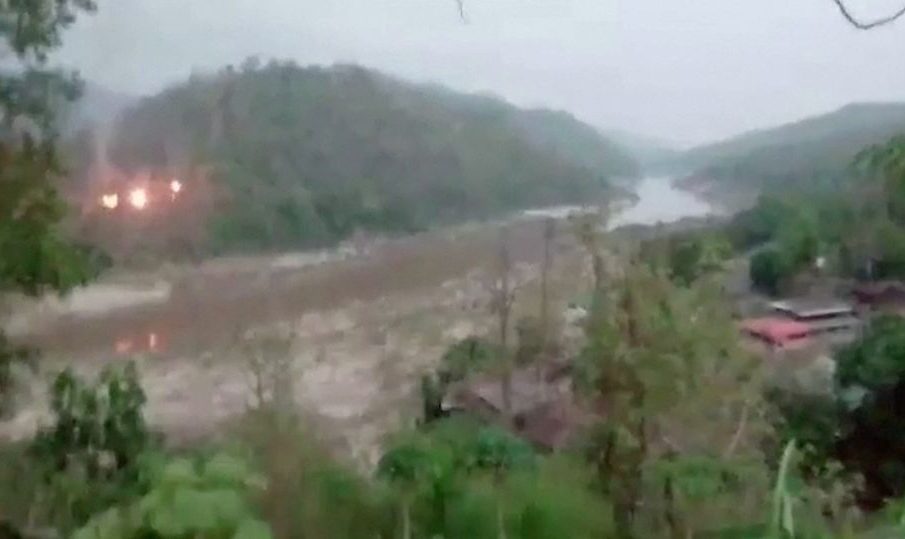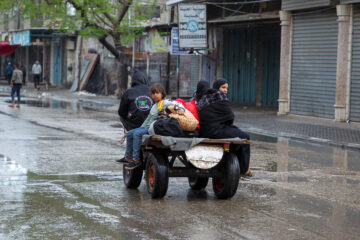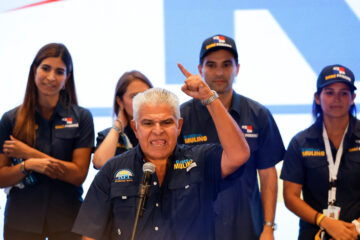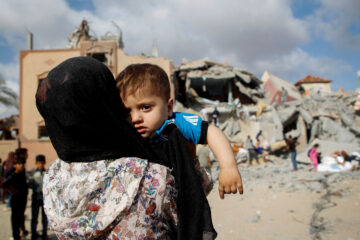Fighting erupts in Myanmar; junta to ‘consider’ ASEAN plan
 Video grab of fires seen on a forested hillside in Myanmar, seen across the Salween river from Mae Sam Laep, Thailand. REUTERS
Video grab of fires seen on a forested hillside in Myanmar, seen across the Salween river from Mae Sam Laep, Thailand. REUTERSFighting erupted in eastern Myanmar near the Thai border early on Tuesday as ethnic minority Karen insurgents attacked an army outpost in some of the most intense clashes since a Feb. 1 coup plunged Myanmar into crisis.
The clash came as the junta said it would “positively” consider suggestions from the Association of Southeast Asian Nations (ASEAN) on ways to end Myanmar’s turmoil, that came out of a weekend meeting in Indonesia.
Southeast Asian leaders said earlier they had reached a consensus with the junta on steps to end violence and promote dialogue between the rival Myanmar sides.
The Karen National Union (KNU), Myanmar’s oldest rebel force, said it had captured the army camp on the west bank of the Salween river, which forms the border with Thailand in the area.
Villagers on the Thai side of the river said heavy gunfire started before sunrise. Video posted on social media showed flames and smoke on the forested hillside.
KNU forces had taken the outpost at around 5 a.m. to 6 a.m. (2230 to 2330 GMT), the group’s head of foreign affairs, Saw Taw Nee, told Reuters.
He said the camp had been occupied and burned down and that the group was still checking on deaths and casualties. The spokesman said there had been fighting in other locations too, but did not give details.
The Karen Information Center media group said the army base had been overrun. It said villagers had seen seven soldiers running away.
Myanmar’s army made no immediate comment. It historically proclaimed itself the one institution that can keep the ethnically diverse country of more than 53 million people together, though much of Myanmar has rallied in opposition to its coup.
The army base at the Thai border had been largely surrounded by KNU forces and food had run short there in recent weeks, according to Thai villagers who had contact with the soldiers.
A Thai official in Mae Hong Son province said one person had been lightly wounded in Thailand during the fighting.
The KNU agreed to a ceasefire in 2012, ending their insurgency for autonomy that began shortly after Myanmar’s independence from Britain in 1948.
But their forces have clashed with the army since it seized power and cut short a decade of democratic reforms that had also brought relative peace to Myanmar’s volatile borderlands.
THOUSANDS FLED
Karen groups say 24,000 people have been displaced in recent weeks by the violence, including air strikes by Myanmar’s air force, and are sheltering in the jungle.
Myanmar main ethnic minority forces based in frontier regions have supported the largely urban-based pro-democracy opponents of the junta, whose security forces have killed more than 750 civilians protesting against the coup, according to an activist group.
Elsewhere in Myanmar, there have been relatively few reports of bloodshed since the weekend meeting between junta leader Min Aung Hlaing and Southeast Asian leaders to try to find a way out of the crisis.
The junta, in its first official comment on the meeting, said it would give “careful consideration to constructive suggestions”.
“The suggestions would be positively considered if it … serves the interests of the country and was based on purposes and principles enshrined in” ASEAN, it said in a statement published on Tuesday.
The junta did not refer to one of ASEAN’s long-cherished principles of non-interference in each other’s affairs.
After the weekend meeting, ASEAN issued a so-called five-point consensus on steps to end the violence and initiate talks between the Myanmar rivals.
Activists have criticised the plan saying it helped to legitimise the junta and fell far short of their demands.
In particular, it did not specifically call for the release of elected leader Aung San Suu Kyi, 75, and other political prisoners. The Assistance Association for Political Prisoners advocacy group says more than 3,400 people have been detained for opposing the coup.
Suu Kyi’s party won a second term in November. The election commission said the vote was fair but the military said fraud at the polls had forced it to seize power.
Myanmar media reported at least one man was shot dead in the city of Mandalay on Monday. The circumstances were unclear.
Protesters have vowed to step up action against the junta and have called on people to stop paying electricity bills and agricultural loans and to keep their children away from school.
“Education staff and students are strongly encouraged to join the boycott and stand together by not attending school,” protest leader Ei Thinzar Maung posted on social media.
SOURCE: REUTERS










